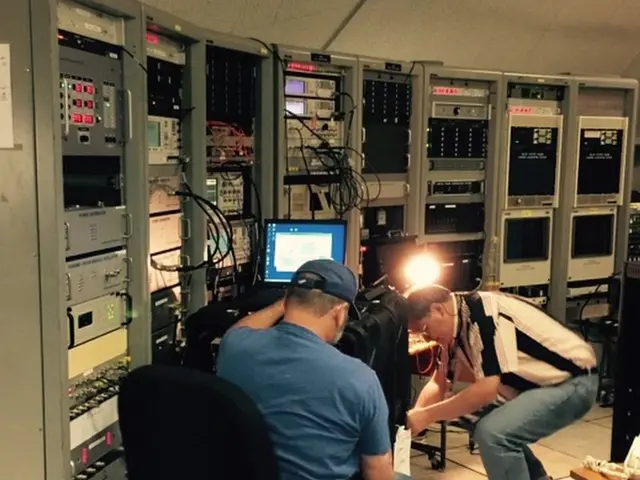Wind Power in the North Takes a Step Back: Fewer Permits and Persisting Challenges
Decreased wind turbine approvals in the Northern region - Limitedwind turbine approvals in the northern region
The northern states have seen a dip in wind turbine installations, with the number of permits dropping from 241 in 2023 to 204 in 2024, as announced at the Wind Branch Day in Husum. Despite this, the state remains a front-runner in permit issuance speed, with permits typically taking 18 months compared to the national average of 23 months.
Last year, these permits equated to a collective capacity of 1.1 gigawatts. Notably, another 348 wind turbines with around two gigawatts of capacity are currently in the permit process. Additionally, 489 more installations are under construction or ready to commission.
The industry is eager to collaborate with the new federal government to create a stable and reliable foundation for the ongoing energy revolution's success. However, the federal government must maintain its course and avoid backward-thinking decisions, such as introducing temporary grid congestion areas that could hinder the expansion of renewables. Instead, accelerating grid expansion and implementing local price signals, as well as designing the Renewable Energy Act for long-term viability, is paramount.
The wind energy sector is the backbone of Germany's power supply, and the industry is committed to pushing the expansion forward with the support of the new administration. However, the sector faces several obstacles, including prolonged and complex permit processes, military airspace restrictions, and bureaucratic hurdles that add to delays and complications. Additionally, grid infrastructure capacity often struggles to transmit the generated electricity efficiently to demand centers, leading to curtailment and hindering the effective use of wind power generation.
To meet ambitious climate targets such as achieving climate neutrality by 2045 and 80% renewable electricity by 2030, Germany is working on legislative and policy changes. This includes speeding up the construction of reserve gas-fired power plants to complement renewables and ensure better alignment of renewable energy expansion with grid development.
In essence, the German wind energy sector is burdened by lengthy and intricate permit procedures, insufficient and congested grid capacity, and systemic challenges that raise costs, risks, and delay project implementation. Addressing these factors is essential to facilitate faster, more coordinated wind power expansion that aligns with grid upgrades and energy security needs. Source Source 2 Source 3 Source 4 Source 5
- The community can aid in the development of the regions by collaborating with the industry to advocate for streamlined permit processes and accelerated grid expansion, essential for efficient wind power usage.
- Science, particularly in the field of environmental science, can offer insights and solutions for managing climate-change impacts and optimizing renewable-energy systems, such as wind power, for regional development.
- finance and investment plays a crucial role in the development and expansion of renewable-energy industries, including promoting wind power projects that offer sustainable and reliable energy sources aligned with Germany's climate targets.
- Fostering the growth of renewable-energy industries, like wind power, contributes to a cleaner environment and reduces reliance on fossil fuels, ultimately leading to a more sustainable and secure energy future.







